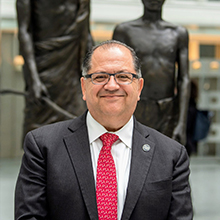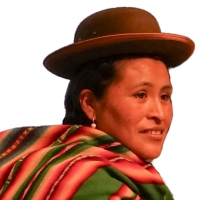In the bustling city of El Alto, Bolivia, where the Aymara and Quechua cultures converge, two remarkable women, Roxana Quispe and Emma Poma, have dedicated their lives to fighting poverty and promoting the rights of Indigenous Peoples. Their journey from poverty to empowerment is a testament to resilience, community, and the power of inclusive development.
In Aymara, an Indigenous Andean language, "Amuyu" conveys the notion of ideas that resemble dreams – ambitions that are pursued. For Roxana and Emma, their Amuyu has carried them from the highlands of Bolivia to the corridors of the World Bank in Washington, D.C., transforming not only their lives but also the future of their communities. This journey, which began in local workshops, reached its peak at the World Bank event, "Addressing the Hidden Dimensions of Poverty in Knowledge and Policies," where they brought the voices of their communities to the global stage, embodying the power of grassroots activism.
Roxana and Emma's paths converged through All Together in Dignity-Fourth World, an international movement dedicated to eradicating poverty around the world. Roxana, born in the Indigenous Aymara community of Causaya in the department of La Paz, was introduced to ATD-Fourth World by a friend in 2011, where she discovered a community focused on reflective learning and community engagement.
Emma, who was born to Aymara parents who migrated from a rural area, in the Niño Kollo peri-urban zone of La Paz department and is currently living in the city of El Alto, joined ATD-Fourth World 18 years ago, where she found a community that allowed her to discover her talents, strengthen her knowledge, and amplify her voice.
Over the years, Roxana and Emma have become vocal advocates for the rights of the poor, bringing their stories to the forefront and demanding change. Their stories reflect a larger narrative of Indigenous empowerment in Bolivia. With about 40% of the population identifying as Indigenous, Bolivia has one the highest percentage of Indigenous Peoples in Latin America. Yet, this group has historically faced significant barriers to education, employment, and political participation.






